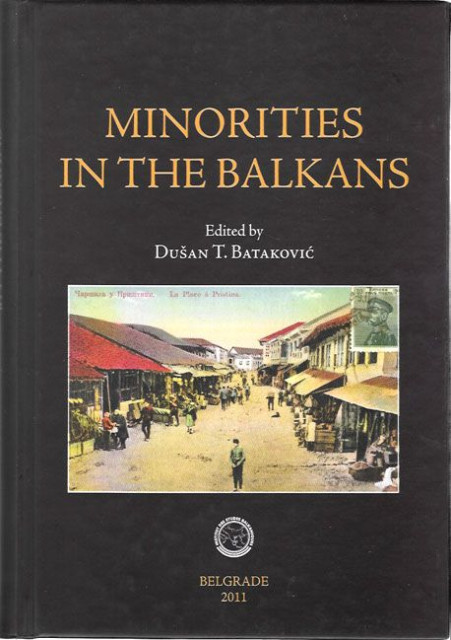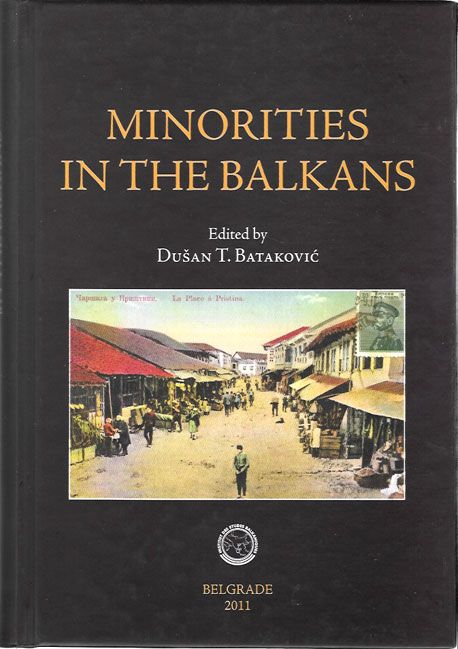Minorities in the Balkans - Edited by Dušan T. Bataković

Oblast: Engleski
Artikal: 24241 : Tezina: 0.88 kg
Zalihe:
0 u zalihama
Izdavač: Balkanološki Institut
Autor: Dušan T. Bataković
Opis: Beograd 2011, tvrdi povez, stanje kao novo, str. 364, geog. karte u tekstu, jezik: engleski/francuski
🚛 Dostava: Opcije i troškovi dostave
2 359 RSD
Minorities in the Balkans. State Policy and Interethnic Relations (1804-2004), ed. Dušan T. Bataković, Belgrade: Institute for Balkan Studies, 2011.
The questions surrounding the status of the minorities in the Balkans over the past two centuries, seen against the backdrop of various governement policies and ideological patterns, or simply as a vital test of interethnic relations, have remained a focus of both political and scholarly attention. The state context and the status of various national and ethnic groups have often undergone dramatic changes. The Habsburg Monarchy and the Ottoman empire, two dominant multiethnic and multicultural empires encompassing most of the Balkans, were seriously challenged by the rising national demands encouraged by the 1804 Serbian Revolution against Ottoman rule, and followed by a succession of wars for national liberation and the establishment of nation-states. Under such circumstances, the national liberation proved to be the key factor in the eventual dismantlement of both empires. Feudal and highly conservative, both the Ottoman and the Habsburg Empire were not only incapable of profound reform but also of working out alternatives to the increasingly appealing national causes coupled with predominantly liberal patterns of national liberation and state independence process as the ultimate objective. In that context, the relationship between the Balkan state and its majority nation (or majority nations), on the one hand, and its internationally protected minorities or other minority groups, on the other, were difficult and strained.
The questions surrounding the status of the minorities in the Balkans over the past two centuries, seen against the backdrop of various governement policies and ideological patterns, or simply as a vital test of interethnic relations, have remained a focus of both political and scholarly attention. The state context and the status of various national and ethnic groups have often undergone dramatic changes. The Habsburg Monarchy and the Ottoman empire, two dominant multiethnic and multicultural empires encompassing most of the Balkans, were seriously challenged by the rising national demands encouraged by the 1804 Serbian Revolution against Ottoman rule, and followed by a succession of wars for national liberation and the establishment of nation-states. Under such circumstances, the national liberation proved to be the key factor in the eventual dismantlement of both empires. Feudal and highly conservative, both the Ottoman and the Habsburg Empire were not only incapable of profound reform but also of working out alternatives to the increasingly appealing national causes coupled with predominantly liberal patterns of national liberation and state independence process as the ultimate objective. In that context, the relationship between the Balkan state and its majority nation (or majority nations), on the one hand, and its internationally protected minorities or other minority groups, on the other, were difficult and strained.























